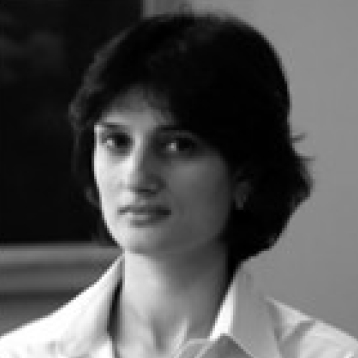- Call Us (24/7):
Menu
Menu
Will Writing Services Mayfair
WILL & PROBATE SOLICITORS MAYFAIR
Its apparent simplicity should not blur the importance of having a will. The significance of drawing up a will is considerable and must not be overlooked.
We provide in-depth Will drafting services that are tailored to meet your unique needs and address any worries you may have.
A well-crafted Will is the ideal way to ensure that your wishes are honoured and that your property or assets have the right protection; this may include reducing Inheritance Tax liabilities and taking into account future care needs and costs.
Drafting a Will requires thoughtful consideration. Our team of experts can assist you in making informed decisions on crucial matters such as who to exclude from benefiting from your estate or how to divide your assets.
We can help by incorporating any past monetary gifts to children and future wishes for grandchildren into your Will.
We strongly feel that difficult circumstances should not automatically equal expensive fees. Our straightforward approach ensures that our prices are reasonable and adjusted to the degree of difficulty. Providing you with quality, swift service without financial strain is our main aim.
Our team of experienced professionals has more than three decades of knowledge in estate planning. When you select our services, you can be assured that you are in good hands.
Get in touch with us now to set up a meeting and begin planning for the future of you and your family. We are here to support you from start to finish.
Our wills, trusts, probate services include:
- Advising you on your options for a will that will best fit your needs
- Contesting or defending a will
- Advance decisions and “Living Wills”
- Business succession planning
- Tax, estate and succession planning
- Drafting your will and associated documents
- Lasting power of attorney
- Trust administration
- Probate and estate administration
- International tax, estate and succession planning
Why Choose Shortlands Solicitors?
Shortlands Solicitors provide a comprehensive and professional will writing service that is tailored to meet your needs. Our team of specialists is committed to ensuring that your instructions are received clearly and accurately so that your will is professionally prepared. We offer the flexibility of in-person appointments, which can take place in the comfort of your own home, to ensure that your requirements are fully understood and addressed.
At Shortlands Solicitors, we understand that cost is an important consideration, which is why we offer a fixed and guaranteed price that we will agree upon with you at the outset. This means that you can have peace of mind knowing that there are no hidden fees or unexpected costs.
Overall, Shortlands Solicitors is the ideal choice for anyone seeking a professional, reliable, and affordable will writing service
Why you can count on Shortlands Law firm
- Over 30 years of experience
- Over 10 years of Will writing experience
- One to One personal service and consulting with you on what your requirements are.
- We Listen to what YOU are saying and understand your needs well
- upfront with you at all times;
- pro-active advice.
- Served more than 550 clients in London only
- Never surprise you with hidden costs
- Maintain the highest ethical standards in all our professional work
- You pay the least amount of tax payable within the law;
- Friendly, courteous and efficientw
How Much Will It Cost?
We understand that cost is an important consideration when it comes to creating a will. At our firm, our fees vary depending on the complexity of the will. However, we are highly competitive with our pricing and we always aim to provide a transparent and affordable service to our clients.
To get started, we ask you to book a fixed fee consultation. During this consultation, we will take the time to understand your needs and provide you with a detailed overview of our services. Once we have a clear understanding of your requirements, we can give you more accurate cost ideas.
What our customers say
During not only an extremely difficult time but also a complex divorce and settlement of finances, I found the staff at Shortlands to be extremely supportive and understanding. Shabana Walayat was in the main handling my case and I was always impressed by her quick grasp of the personalities involved and how she responded appropriately and effectively each time a particularly...
Sara Hayter
Dear Shortlands,
A very big thank you for all your help regarding my case, brilliant service provided and I will be recommending your good name to all who seek legal representation.
Lee Kimberley
Thank you both for helping me through this sad process; you made it straightforward and much less painful than it could have been. I am of course relieved it is over. Excellent service, highly professional and humane.
Elena
I have found Shortlands a very approachable firm in dealing with my separation and divorce matters. They have been professional; respecting my point of view and providing the best advice on each situation. It has been very easy to communicate with them via email and on the phone. I certainly don’t think I would have been able to go through the process without their expertise and I am very happy to recommend them.
Ana Maria Serrano
When I first called Shortlands solicitors I was very scared and extremely upset. It was an incredibly distressing time for me, but after speaking to Shabana, from the very beginning she was very understanding and quick to listen to my concerns, give me the correct advise and guide me in a very difficult situation, she was very professional and easy to talk, she answered all the questions. She was fully engaged...
Flor Barsallo
Get In Touch
Fields marked with an * are mandatory.
Our Services
Divorce
Child Arrangements
Financial
For legal advice on any aspect of will, trusts, probate or estate administration, contact our team of specialist wills and probate solicitors by using info@shortlands.co.uk or call us 02076299905 or book an initial online consultation.
Our Professional Team
Latest Wills and Inheritance Law News
Important Facts About Will Writing In UK
- In the UK, anyone who is over 18 and of sound mind can make a will.
- A will is a legal document that outlines your wishes regarding the distribution of your assets after your death.
- It is recommended that you review your will every few years or after any major life changes, such as marriage, divorce, the birth of a child, or the acquisition of significant assets.
- A will can be challenged in court if it is deemed to be invalid or if there are disputes over its contents.
- If you die without a valid will in the UK, your estate will be distributed according to the laws of intestacy, which may not align with your wishes or values.
- DIY wills are becoming increasingly popular, but it is important to ensure that your will is legally binding and reflects your wishes.
- Working with a professional wills and probate solicitor can help ensure that your will is comprehensive, legally binding, and tax-efficient.
- In some cases, a trust may be a more appropriate way to distribute your assets and provide for your loved ones after your death.
- It is important to keep your will in a safe place, such as a fireproof safe or a bank deposit box, and to inform your loved ones and executor of its location.
- Finally, creating a will can provide you with peace of mind knowing that your loved ones and assets will be protected according to your wishes, even after you’re gone.
Frequently Asked Questions
Here are the answers to some of our most frequently asked questions. Make sure you contact us if you need more information or an answer to a specific question.
What Is A Will?
A Will is a legal document that allows you to specify what happens to your person, possessions, property and finances after you die. This is a very important document for people to have, since, if you do not organise your own assets before your death, the government will be free to decide what happens.
Do I Need A Will?
If you have property, possessions or money and you would like to specify who that money goes to, you will need a Will in order to do so. If you don’t have a Will, the government will be able to decide how your assets are distributed, and if you don’t have living relations for the government to divide your assets amongst, it may go to the Crown.
What Is An Executor?
An executor is a person who distributes your estate after you have died. It is common to have between 2 and 4 of these people, and you should inform them beforehand since the role has a lot of responsibility and requires a high level of trust.
Why Do I Need A Lawyer To Write My Will?
It is not compulsory for a solicitor to write your Will. It may be cheaper for you to write it on your own, and this is an option increasing in popularity. However, we always recommend getting the support of a solicitor during the Will writing process, as it is an important legal document, and careful wording is necessary to ensure that your meaning cannot be misconstrued after your death.
When Do I Need A Will?
A Will can often seem like something that is mostly required for older people, or perhaps even after retirement. But this isn’t necessarily true. If you are young and you own property or have other types of assets, it is important to specify what you want to happen in the event of an untimely death. This is especially important if you have children, as you are able to specify things like a Guardian. This means that if you die before your children reach 18 years old, you know who will look after them.
Who Can Make A Will?
Anyone over the age of 18 can create a Will. You need to be making it voluntarily and be sound of mind in order to make a Will, and it must be in writing.
What Can I Include In My Will?
There are many things that people can include in their Will to leave instructions for. It is often recommended to include a list of all the assets you intend on sharing at the beginning of the Will, and then specifying who gets what. Potential things to list in a Will include:
- Executors
- Beneficiaries
- Guardians
- What happens to your pets
- Trusts
- Appointing Trustees
- Funeral Arrangements
- Your Estate
What Is A Beneficiary?
A beneficiary is the name of someone who will be listed in your Will as a recipient of some part of your estate.
What Is A Witness?
A witness is someone who is present to witness the signing of the Will. The witness cannot be a beneficiary of the Will. They must be over the age of 18, and there must be at least 2 Witnesses to the signing of a Will.
Where Should I Store My Will?
Wills are very important documents that need to be stored carefully to prevent loss or damage, therefore we do not recommend people storing them in their own homes. Your solicitor’s office will be willing to look after your Will for you and any other copies should be stored in a safe and secure place. You should inform your executors of this location.
Do I Need To Review My Will?
You should review your Will around once every 5 years to ensure that everything is still the same and you still agree with what is written. Also, if you have a big life change, like purchasing property, moving, marriage, divorce, etc. then you should review your Will to reflect these changes to your situation.









